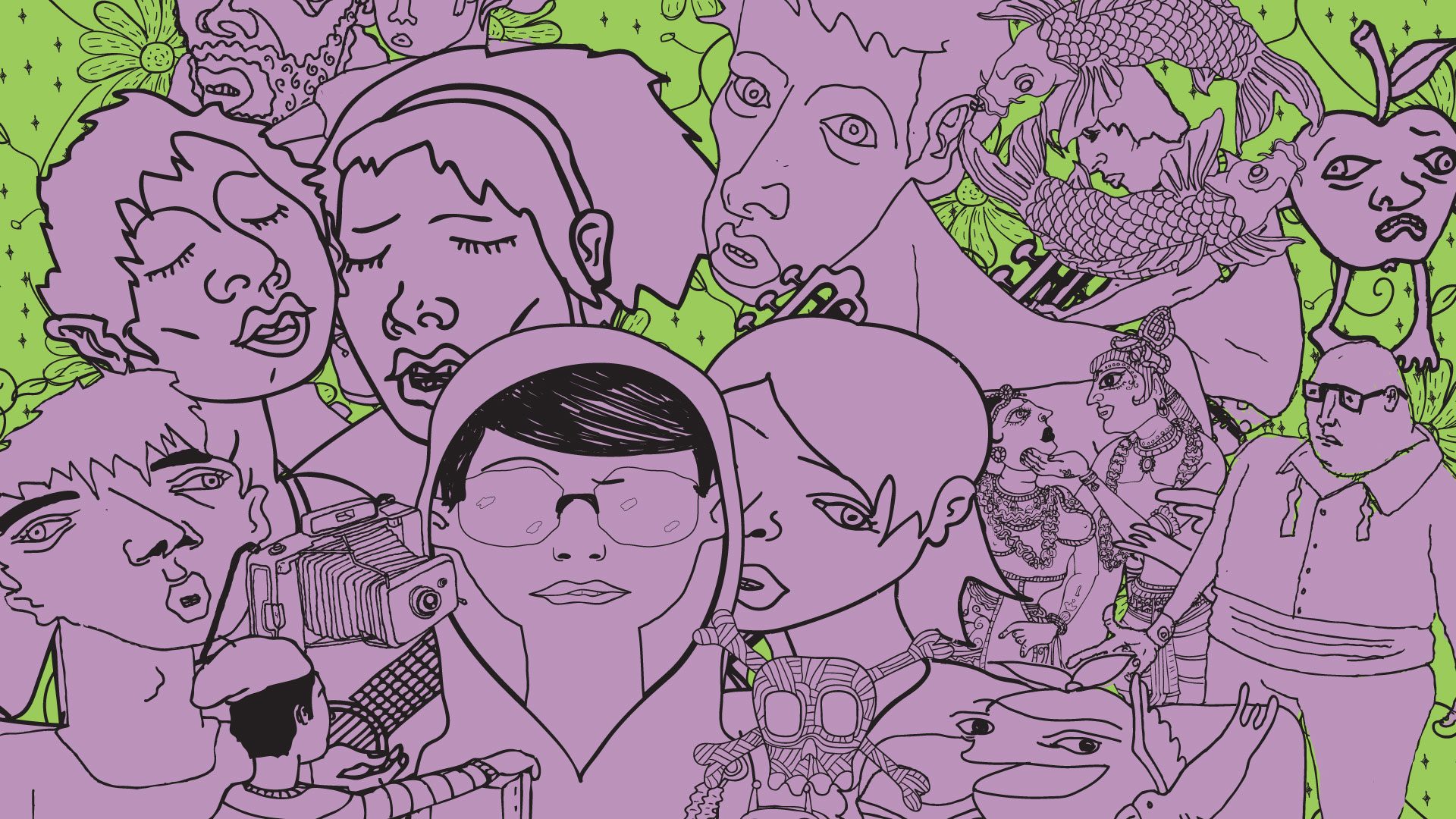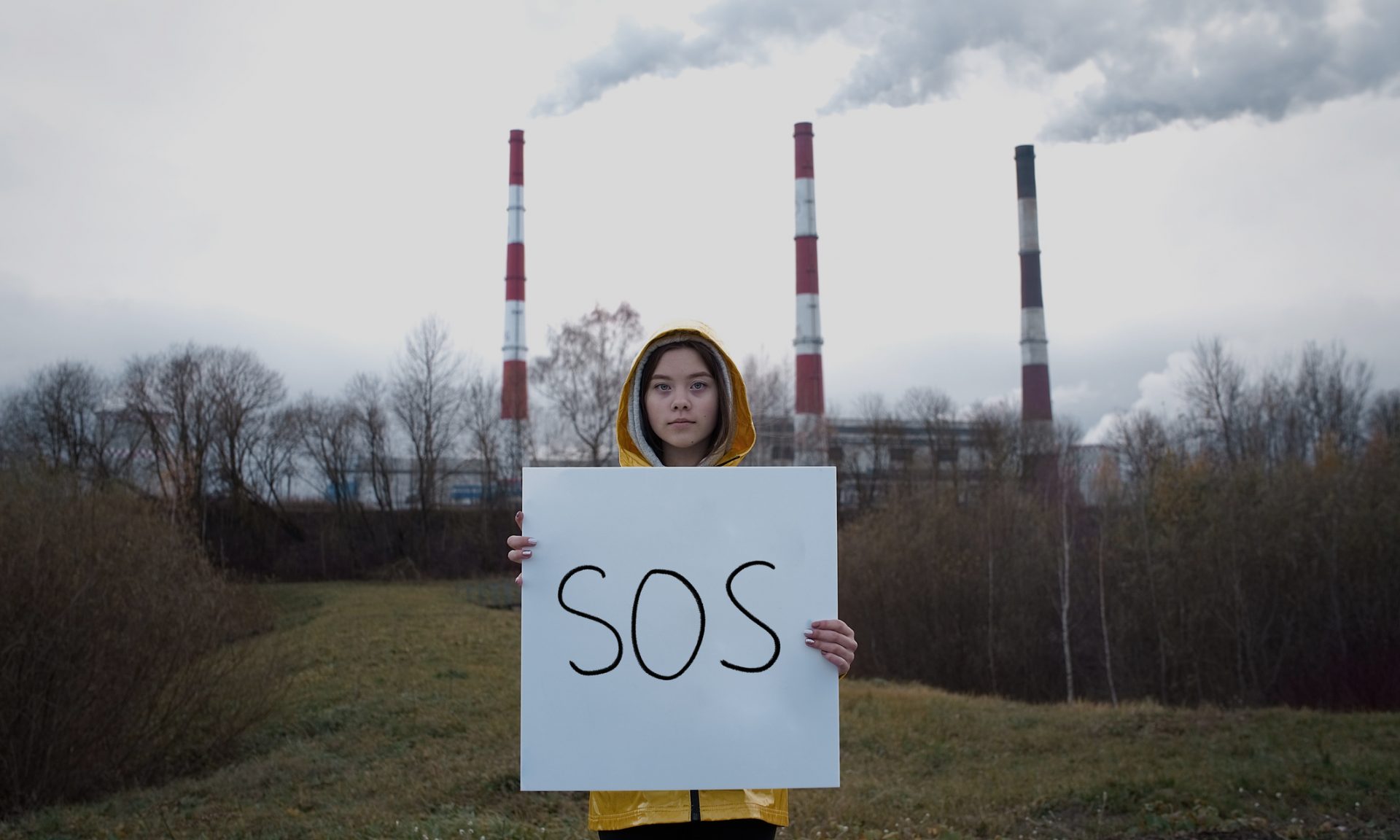
What we know about Gen Z and what we fail to see
During the pandemic, the topic of generations became increasingly popular in the public sphere, from the everyday chitchats and the concerns of affected people to the official political discourse, mainstream media, social media or even Netflix series. 1 The discrepancies of Covid-19’s effects on different age groups undoubtedly came to the spotlight. Regardless of conflicting viewpoints, one cannot deny that if we want to better understand how the pandemic has affected our lives, it would be a grave omission to ignore the generational dimension. Even more so, if we want to consider the overall economic, social, and psychological effects of the pandemic in relation to the reproduction and widening of social inequalities.
Within this broader discussion, we turn our attention to Generation Z, the generation that follows the Millennials and includes everyone born from the mid to late ‘90s till early 2010s; all those who were raised in a time of global crisis after 2008 and experience the coronavirus pandemic at a very crucial — from every aspect — stage of their life.
In this article, we ‘ll critically examine media portrayals of the youth and shed light on questions around Generation Z’s political attitudes and behaviors presenting findings and stories that we found most interesting. Our aim is to widen the perspective and bring into view key elements that will bridge the international discussion with our project on Gen Z in Greece.
Challenging stereotypes against Gen Z and Millennials
Mainstream media’s representation of Gen Z during the pandemic could be summarised as follows: Gen Zers are “careless”, “irresponsible”, “uninformed” and “spreaders of the virus”. These labels have been heavily criticised as reproducing stereotypes and stigmatizing an entire generation. As social scientists working in two international settings — Canada and France — argued in The Conversation, these representations are not substantiated by research and have distorted the actual experiences, practices and attitudes of young adults towards COVID-19. Even more, these labels are often used in public discourse to sidetrack discussions from the actual impacts of the pandemic on this generation.
On a broader perspective, the way Gen Z is recently framed has many similarities with the way millennials were framed the past decade. If we searched for a term that pops up in both cases and sums up the stereotyping and belittlement of a whole generation, it will surely be “snowflakes”. Espoused not only by the mainstream media but also by the alt-right, 2 this term is portraying the new generation as “oversensitive”, that “cannot withstand the cruel real world and end up melting like a snowflake”.
The beginning of an article published in the Daily Star in 2018 is indicative of the way this term is used in public discourse: “SHELTERED snowflakes with no idea how to survive in the real world are having to pay for ‘adulting’ classes”.
Gen Z has also been at the centre of the debate in the Greek public sphere during the pandemic. Stereotypical portrayals of Gen Z, accusing them of socializing recklessly and not acting responsibly, were yet again not at all absent. In this regard, most iconic moments were the references to the “youngsters’ erotic summer”, blaming them for the second wave of Covid-19 or the 150-euro voucher for people aged 18 to 25, as a reward for getting the vaccine.
At the same time, young people seem to have turned their back on the mainstream media, as evident from relevant research that records high levels of media distrust. This trend is even more palpable in Greece, given the heightened controversy over news coverage during the pandemic. 3
Are Gen Zers getting more radical during the pandemic?
While the dominant narrative frames youth as “reckless” and “apathetic”, there is a growing number of recent articles turning attention to the increasing engagement of Gen Z with political issues and analysing political radicalism among the younger generations. According to the recent article in Financial Times “Losing the generation game”, young people feel marginalised from mainstream politics, which, combined with the harsh experiences they had during the pandemic, is likely to lead to their radicalisation, “potentially in a dramatic fashion”. In the same article, Keir Milburn, professor of political economy and author of the book Generation Left, describes the emergence of a “radical pragmatism” within the new generation, a firm position “that things need to change”. 4 In recent years, there are many signs of political radicalism across the globe, such as the mobilisations for climate change, gender equality and racial justice. 5

Bringing more specific data into the discussion, rather impressive insights are offered by the Institute of Economic Affairs (IEA), one of the most important conservative think-tanks of Britain. The survey was carried out in winter of 2021 with responses from just under 2,000 participants, all aged 16-34, from every region of the UK. The following are some of the key findings: a) four in five respondents believe that solving Britain’s housing crisis requires large-scale government intervention, through measures such as rent controls and public housing, b) 72 per cent of young people support the (re)nationalisation of various industries such as energy, water and the railways, c) 72 per cent also believe that private sector involvement would put the NHS at risk, and d) 67 per cent of younger people say they would like to live in a socialist economic system. 6
From the conservative point of view, as articulated in IEA’s report titled “Left Turn Ahead?”, these findings “should act as a wake-up call”. As Kristian Niemietz, the author of the report and IEA’s Head of Political Economy, explains, these findings support the hypothesis that the description of millennials as “a hyper-politicised generation, which embraces ‘woke’, progressive and anti-capitalist ideas, is increasingly extended to the first cohorts of the subsequent generation, ‘Generation Z’”.
Even more recently, Gen Z is driving “The Great Resignation”, a wave of mass voluntary resignations happening during the pandemic. For example, in the beginning of the autumn of 2021, the total number of employees quitting their jobs in the US reached 4,5 million. 7 Meanwhile, the r/antiwork forum in Reddit numbers 1,7 million members, including thousands of young adults sharing their own stories of job precarity and their unwillingness to accept what they are given. The above trend should be seen in combination with the recent findings of Gallup research in the US, according to which 77% of young adults aged 18-34 approve of unions.
Το further complement this picture, we now turn attention to stories of young workers fighting to create new unions, like it happened at Starbucks cafes in New York. The members of the collective “Starbucks Workers United”, mostly female employees under 25, succeeded to overcome all the anti-union efforts of the company. 8 Starbucks’ union vote by the end of 2021 became a landmark victory for Gen Z workers. The tweet of the collective, signaling their victory, has a lot to say about their zeal to improve working conditions: “Forget Gen-Z, call us Gen-U from now on. Generation Union!”
Forget Gen-Z, call us Gen-U from now on. Generation Union! pic.twitter.com/365suYuMzC
— Starbucks Workers United (@SBWorkersUnited) December 10, 2021
On the other hand, reality leaves no room for simplified generalisations and idealisation. The overall number of unionised workers in the private sector in the US is just above 6%. 9 Respectively, 38% of trade union members in the UK are over the age of 50, with just four percent younger than 24. 10
At the same time, the debates around working conditions and the new generation in the EU are happening in the light of the latest data from Eurostat, according to which over 2,8 million young people were unemployed in the autumn of 2021. It’s worth mentioning that Greece ranks first among all EU members, with the unemployment among young people under the age of 25 recorded at 39,1%.
From the above, we can conclude that there are significant indications of the new politicisation of Generation Z. However, we need to carefully consider all parameters, otherwise we will end up underestimating difficulties and contradictions, thus beautifying and not changing reality.
The impact of neoliberalism and the danger of alt-right
When turning our attention to Generation Z in Greece, we see that it seems to follow these global trends. In a nutshell, there are sufficient indications that a significant segment of Gen Z in Greece is increasingly active in the social and political arena, such as the recent student movements, as well as antifascist and feminist mobilisations, something that is also substantiated from relevant studies. 11
On the other hand, we should also take into careful consideration data revealing existing contradictions. For example, Kapa Research recently carried out a survey on “the identity of the new generation” focusing on both Gen-Zers and Millennials in Greece. The following question is indicative of the opposite tendencies related to political attitudes and behaviors of the youth: “Personally, which of the following do you trust most in defending the interests of your generation?” The answer “myself” was by far the most popular response, while more traditional forms of collective action, like unions, students’ political organizations and political parties, were ranked very low.
To take this discussion further, the research programme “Radicalism and youth in crisis-stricken Greece” stands out and provides a deeper look into these questions. Conducted by the Institute of Greek Politics at the National and Kapodistrian University of Athens under the supervision of Prof. Maro Pantelidou-Malouta, this research has explored the political identity of youth in the second decade of the 21st century in Greece elaborating on the term “radicalization” and its uses. As the researchers conclude, despite the increased non-institutional political engagement or the clear left turn of young people and their electoral preferences during the past decade, “there is no sufficient evidence to suggest that the young people’s ideological formation could allow us to claim that their radicalisation is an accomplished process”. 12
On the other side of the collective action and the fighting spirit of the youth, we find widespread despair, the absence of political vision and, often, the cynicism that is quite prevalent in many segments of this generation. What they emphatically stress in their analysis is that the impact of neoliberalism on the younger generations should not be underestimated, since its hegemony affects all the spheres of social life, not just that of economy. 13
Apart from neoliberalism, it would be a major fault to underestimate the increasing influence of the extreme right on the new generation. After all, it’s a quite common alt-right practice to attack, on the one side, the “oversensitive” new generation, and on the other side, to try and win them over through their tactics and ideas. In this regard, the figures are very worrisome a few months before the French presidential elections. More precisely, 2021 polling data show Mari Lepen in the first place of voter preference for ages 18-25, together with E.Macron. 14 At the same time, the new candidate of the alt-right, the TV star Éric Zemmour, convicted in the past on racism charges against black and Arabs, 15 has the support of a youth organization, numbering around 5000 members. Its name: “Génération Z”, with Z standing for Zemmour. 16
It’s evident that within this new generation there is an ongoing internal conflict related to politics, values, and worldviews manifested in all spheres of life. Therefore, Gen Z can be seen as a seismograph, indicating which are the existing dynamics in the wider society and which are the alternatives that seem to take form.
Reframing the discussion: seeing through the eyes of Gen Zers
All in all, Gen Zers are stressed out, “cannot breathe”, fight and rediscover politics in both traditional and novel ways, in a complicated and contradictory process that does not fit into predetermined schema. Returning to our starting point, namely the “snowflake” label, we can see that mainstream narratives tend to blame the new generation for some of their most interesting characteristics: increased empathy for each other’s experiences of oppression, based on their race, class, gender identity, sexual orientation etc., as well as their outrage against stigma and discrimination. Even more, these mainstream narratives call on the youth to focus on their individual survival in a competitive world and leave aside social concerns, climate anxiety, labour unions, feminism, and other so-called “sensitivities”.
How can we challenge these mainstream narratives and stereotypical portrayals of Gen Z? There are no easy answers, especially because dominant narratives are powerful enough to become common sense. Eteron attempts to open the “black box” and potentially contribute to reframe the discussion on Generation Z. Of course, we acknowledge the difficulties to identify what constitutes a key arena to dispute common sense, but we won’t begin at ground zero.
Firstly, to avoid the trap of, even unconsciously, reproducing stereotypes, we will deploy methodologies emphasising the need for a self-reflective approach related to our own positionality as part of the project “Gen Z/ Voice On”. In other words, there is always an even greater need to carefully consider this matter when researching, talking, and writing about Gen Z, when we ourselves are not Gen Z.
Secondly, to deconstruct myths and stereotypes about Gen Z, we will build our research on and relate it to existing knowledge and provide additional data, analytics and insights focusing on Gen Z in Greece during the pandemic. More precisely, we intend to explore social and political attitudes and behaviors in relation with different types of information sources and ways of using social media. In contrast with those analyses that either praise social media without a second thought on alienation and other harmful impacts, or see social media one-sidedly as a “threat to democracy” , 17 we intend to explore if digital communities and platforms, like instagram, facebook, tiktok, twitter can, under certain conditions, reinvigorate public discourse and have a positive impact on social change.
Finally, drawing from the methodological toolkit for reframing public debates, 18 we wholeheartedly agree on the importance of storytelling and the power of stories and values that resonate well and can have the maximum impact.
Having this in mind, the project “Gen Z – Voice On” will try to contribute in a constructive manner to the ongoing international discussion on Gen Z, combining research on Gen Z in Greece with participatory initiatives where Gen Zers will have the last word.
Costas Gousis is the project Coordinator of “Gen Z/Voice On”.
Footnotes
- “Inside” is a characteristic example. Released on Netflix in May 2021, it is a comedy special written, directed, filmed, edited, and performed by comedian Bo Burnham. Recorded in the guest house of his Los Angeles home during the COVID-19 pandemic, among other themes, it explores the generational aspect.[↩]
- The L.A. Times included the “snowflake” label in their guide to the language of the ‘alt-right’, while the Guardian described the phrase ‘Poor little snowflake’ as the defining insult of 2016.[↩]
- Flamingo, ‘How Young People Consume News and the Implications for Mainstream Media’ (Reuters Institute, 2019); Antonis Kalogeropoulos, ‘2021 Digital News Report’ (Reuters Institute for the Study of Journalism, 2021) [↩]
- In our interview with Keir Milburn for Eteron, we had the opportunity to discuss some of the ideas he has put forward in the international debate on generations.[↩]
- Paul Mason, ‘How the Covid shock has radicalised generation Z’, Guardian, 2 June 2021 [↩]
- Kristian Niemietz, ‘Left turn ahead: Surveying attitudes of young people towards capitalism and socialism’ (Institute of Economic Affairs, 2021): 7 [↩]
- U.S. Bureau of Labor Statistics, ‘Job Openings and Labor Turnover Summary’, Economic News Release, January 4, 2022[↩]
- Michael Sainato, ‘Starbucks launches aggressive anti-union effort as upstate New York stores organize’, 23/11/2021 [↩]
- U.S. Bureau of Labor Statistics, ‘Union Members Summary’, Economic News Release, 20/1/2022[↩]
- James Meadway, ‘Generation Left Might Not Be That Left After All’, 22/7/2021[↩]
- Nicos Poulantzas Institute, ‘Youth: Trends, Attitudes & Political Behaviour’, 2021; Ntina Daskalopoulou, Rafaella Maneli and Eva Papadopoulou, ‘Youthquake in the 21st Century’, 20/9/2020; Alexandros Skouras, ‘Generation 17’ (ERTFLIX, 2021-2022) [↩]
- Maro Pantelidou-Malouta and Lina Zirganou-Kazolea, ‘The young Greek voters of the Left and radicalism during 2010s’, Greek Political Science Review, 46 (2020), 172 (in Greek) [↩]
- In this regard, the fact that the most popular party for first-time voters in the recent German election was the neoliberal FDP, along with the environmentalist Greens, is quite thought provoking [↩]
- James Meadway, ‘Generation Left Might Not Be That Left After All’ [↩]
- Angelique Chrisafis, ‘French journalist convicted on racism charge over drug dealer comment’, Guardian, 18/2/2011 [↩]
- Simon Gaël, ‘’On peut être jeune et soutenir Zemmour’, qui sont les membres de Génération Z en Côte-d’Or ?’, Franceinfo, 15/1/2022; Oliver Haynes, ‘When a far-right candidate has ‘le buzz’, France shouldn’t take young people for granted’, Guardian, 12/2/2021 [↩]
- For example, during a parliamentary debate over police violence in Greece in March 2021, Greek Prime Minister Kyriakos Mitsotakis “blamed social media for the increase of unrest in the country and depicted them as a ‘threat to democracy’”, see ‘PM Mitsotakis says Social Media are “bad for our democracy”’, Keep Talking Greece, 12 March 2021 [↩]
- George Lakoff, Don’t Think of an Elephant!: Know Your Values and Frame the Debate–The Essential Guide for Progressives (Chelsea Green Publishing, 2004) [↩]



